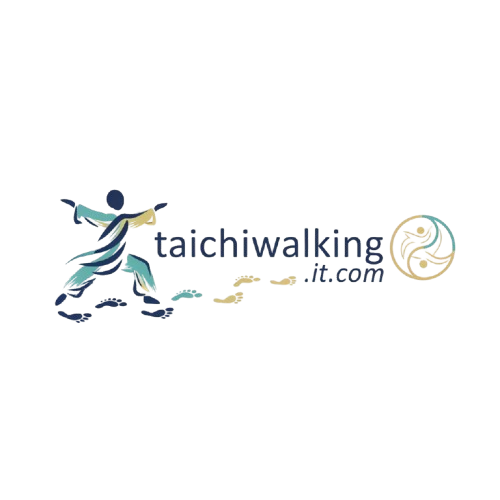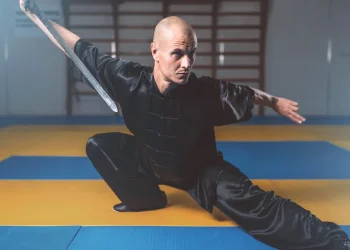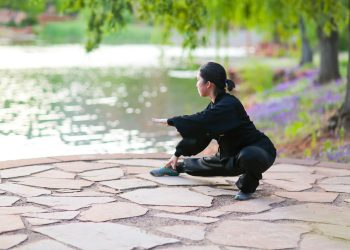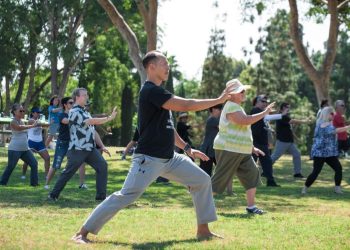There’s something almost magical about the early morning hours. The world feels fresh and full of possibility, the air is crisp, and the day stretches out before you like an unwritten story. What if I told you that a simple morning walking routine could be the catalyst that transforms not just your mornings, but your entire life? It’s not an exaggeration. Morning walking is one of the most accessible, sustainable, and powerful habits you can adopt, and it might just be the missing piece in your wellness puzzle.
The Remarkable Benefits of Morning Walking
When you lace up your shoes and step out into the morning air, you’re doing far more than just moving your body from one place to another. You’re triggering a cascade of physical, mental, and emotional benefits that ripple through every aspect of your day.
Physical Transformation from the Ground Up
Morning walking is a gentle yet effective form of cardiovascular exercise that strengthens your heart without the intensity that might feel overwhelming or unsustainable. Your heart rate increases moderately, improving circulation and helping to lower blood pressure over time. This daily practice can reduce your risk of heart disease, stroke, and type 2 diabetes significantly. Studies have shown that people who walk regularly have a lower risk of chronic diseases compared to their sedentary counterparts.
But the benefits don’t stop at your cardiovascular system. Walking engages nearly every muscle group in your body, particularly your legs, core, and glutes. While it may not build bulging muscles, it creates lean, functional strength that serves you in daily life. Your bones benefit too. The weight-bearing nature of walking helps maintain bone density, which is crucial for preventing osteoporosis as you age.
Perhaps one of the most appreciated benefits is weight management. A brisk morning walk can burn anywhere from 200 to 400 calories depending on your pace, body weight, and duration. More importantly, morning exercise has been shown to regulate appetite hormones throughout the day, potentially reducing overeating and cravings. When you walk first thing in the morning, you’re also jumpstarting your metabolism, keeping it elevated for hours after you finish.
Mental Clarity and Emotional Well-being
The mental and emotional benefits of morning walking might be even more profound than the physical ones. When you walk, your brain releases endorphins, those feel-good chemicals that create a natural high and improve your mood. This isn’t just temporary either. Regular morning walkers report significantly lower rates of depression and anxiety compared to non-walkers.
Morning walking also provides a unique opportunity for mental clarity. In our hyper-connected world, those early morning steps offer precious time for reflection, problem-solving, and creative thinking. Many successful people swear by their morning walks as a time when their best ideas emerge. Without the distractions of emails, notifications, and daily demands, your mind is free to wander, process, and create.
The stress-reduction benefits are equally impressive. Walking naturally lowers cortisol levels, your body’s primary stress hormone. Starting your day with a walk essentially sets a calm, positive tone that can help you handle whatever challenges come your way. You’re building resilience with every step.
Better Sleep and Energy Patterns
Here’s a delightful paradox: morning walking actually improves your sleep quality. By exposing yourself to natural morning light during your walk, you help regulate your circadian rhythm, your body’s internal clock. This makes it easier to fall asleep at night and wake up feeling refreshed in the morning. Many people who struggle with insomnia find that establishing a morning walking routine helps them sleep better than any supplement or medication ever did.
The energy boost from morning walking is also remarkable. While it might seem counterintuitive to expend energy first thing in the morning, walking actually increases your overall energy levels throughout the day. It’s more effective than caffeine and without the crash. You’re oxygenating your cells, stimulating your nervous system, and preparing your body and mind for peak performance.
Establishing Your Morning Walking Routine
The key to making morning walking a sustainable habit lies in how you establish your routine. Many people start with enthusiasm but fizzle out after a few days or weeks. Here’s how to build a routine that sticks.
Start Small and Build Gradually
The biggest mistake new morning walkers make is trying to do too much too soon. If you’re not currently a morning person or if exercise hasn’t been part of your routine, don’t commit to walking an hour every morning. Start with just ten or fifteen minutes. This might seem insignificant, but it’s enough to trigger the habit loop in your brain without overwhelming you.
Once you’ve successfully walked for ten minutes every morning for a week or two, gradually increase your duration by five-minute increments. This progressive approach builds confidence and allows your body to adapt without injury or burnout. Remember, the goal is to create a lifelong habit, not to prove something in the first week.
Prepare the Night Before
Success in the morning starts with preparation the night before. Lay out your walking clothes, shoes, and any gear you need. If you drink coffee or water before walking, have it ready to go. Consider setting out a water bottle if you’ll need hydration during or after your walk. This preparation eliminates decision-making and potential obstacles when you’re still groggy in the morning.
Some people find it helpful to lay out their clothes in a way that’s almost impossible to ignore. Put them on a chair next to your bed or even wear your workout clothes to sleep if that helps. The fewer barriers between waking up and getting out the door, the more likely you are to follow through.
Choose Your Wake-Up Time Strategically
You don’t need to wake up at dawn to be a morning walker, though there’s something special about watching the sunrise. Choose a wake-up time that gives you enough time to walk before your other morning obligations begin. For some people, this might be 5:30 AM; for others, it might be 7:00 AM. What matters is consistency and ensuring you have enough time to complete your walk without feeling rushed.
Set your alarm across the room so you have to physically get up to turn it off. Once you’re up and moving, you’re far more likely to follow through with your walk than if your alarm is within arm’s reach.
The Ideal Duration for Your Morning Walk
The question of ideal duration doesn’t have a one-size-fits-all answer, but there are some helpful guidelines to consider.
For general health benefits, the American Heart Association recommends at least 150 minutes of moderate-intensity aerobic activity per week. If you’re walking every morning, this breaks down to about 22 minutes per day. However, walking for 30 to 45 minutes is often considered the sweet spot for maximizing benefits without requiring an excessive time commitment.
A 30-minute morning walk is long enough to significantly impact your cardiovascular health, boost your mood, and burn meaningful calories, yet short enough that most people can fit it into their morning routine without major lifestyle disruption. At a moderate pace of about three to four miles per hour, you’ll cover roughly one and a half to two miles in this time frame.
That said, even shorter walks provide substantial benefits. If you can only manage 15 or 20 minutes, that’s infinitely better than not walking at all. Similarly, if you have the time and inclination to walk for an hour, and your body feels good doing so, there’s no reason not to extend your walk.
Listen to your body and adjust based on how you feel. Some days you might have the energy for a longer, brisker walk. Other days, a gentle 20-minute stroll might be all you need. The important thing is consistency, not perfection.
Tips for Maintaining Consistency
Building the habit is one thing; maintaining it is another. Here are proven strategies to help you stay consistent with your morning walking routine.
Find Your Why
Connect your morning walking routine to a deeper purpose beyond just “getting exercise” or “being healthy.” Maybe you’re walking to have more energy to play with your children, to manage stress so you can be more present at work, or to prove to yourself that you can commit to something meaningful. When motivation wanes, as it inevitably will, your deeper why will carry you through.
Track Your Progress
There’s something deeply satisfying about seeing evidence of your consistency. Use a simple calendar to mark off each day you complete your walk, or use a fitness tracker or smartphone app to log your walks. Watching your streak grow creates momentum and makes you less likely to break the chain. Many people find that once they’ve walked consistently for 21 or 30 days, the habit becomes much easier to maintain.
Make It Enjoyable
Your morning walk should be something you look forward to, not dread. Experiment with different routes to keep things interesting. Create playlists of energizing music, inspirational podcasts, or audiobooks that you only listen to during your walks. This creates positive association and gives you something to look forward to.
Alternatively, embrace the silence. Some people find that walking without any audio input allows for meditation, mindfulness, and deeper mental processing. Try both approaches and see what resonates with you.
Adapt to Weather and Seasons
Don’t let weather be your excuse. Invest in appropriate gear for different conditions: a good rain jacket, layers for cold mornings, or a light, breathable outfit for warm weather. There’s no such thing as bad weather, only inadequate clothing. That said, safety comes first. If conditions are genuinely dangerous due to ice, extreme temperatures, or severe weather, have a backup plan like walking inside a mall or on a treadmill.
Find a Walking Buddy or Community
Social accountability is powerful. If you have a friend, family member, or neighbor who will walk with you, you’re much more likely to show up on those difficult mornings. If you can’t find someone to walk with in person, join online communities of morning walkers who share their experiences and encourage each other.
Celebrate Milestones
Acknowledge your achievements along the way. When you hit 30 consecutive days of walking, treat yourself to something special. When you reach 100 walks, celebrate that milestone. These celebrations reinforce the positive behavior and remind you of how far you’ve come.
Be Compassionate with Yourself
Finally, understand that perfection isn’t the goal. You will miss days. Life happens. What separates successful morning walkers from those who give up is how they respond to setbacks. If you miss a day, don’t spiral into self-criticism or use it as an excuse to abandon the routine. Simply acknowledge it and commit to walking the next day. One missed walk doesn’t erase weeks or months of consistency.
Conclusion: Your Journey Begins with a Single Step
The journey to establishing a transformative morning walking routine doesn’t require special equipment, an expensive gym membership, or exceptional athletic ability. It simply requires a decision followed by consistent action. Those early morning steps, repeated day after day, compound into remarkable changes in your physical health, mental clarity, emotional well-being, and overall quality of life.
The person you’ll become through this simple practice extends far beyond the health benefits. You’ll become someone who keeps commitments to themselves, who starts each day with intention, and who understands that meaningful change comes not from grand gestures but from small, consistent actions. Your morning walking routine is a daily vote for the person you want to become.
So set your alarm, lay out those walking shoes, and prepare to meet tomorrow morning with open arms. The path to a better you begins with a single step, and that step begins tomorrow morning. The sunrise is waiting, and so is the best version of yourself.






